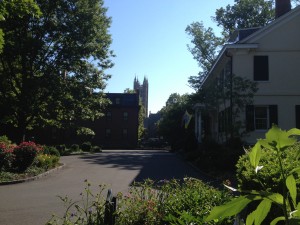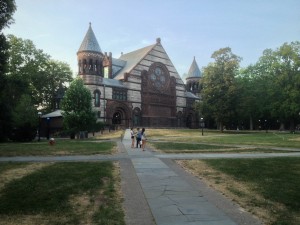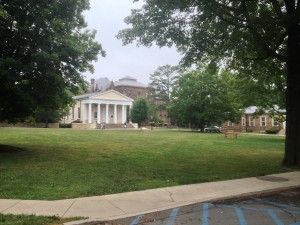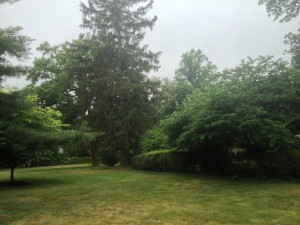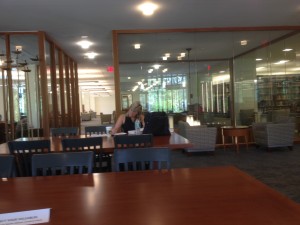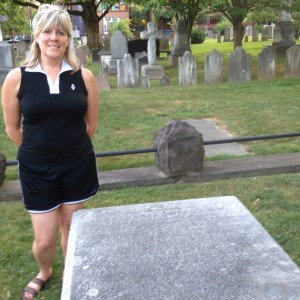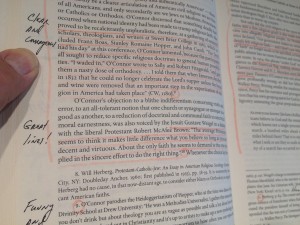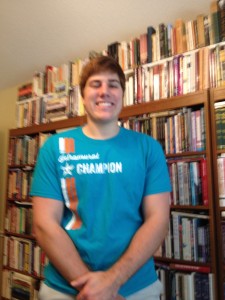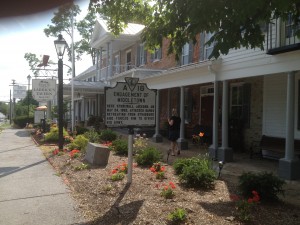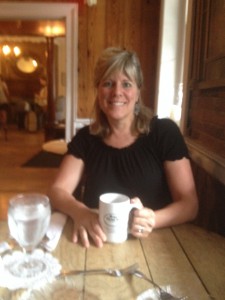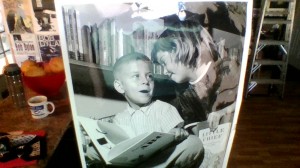Yesterday, we posted a picture outside of Payne Hall. Here is our living room:
Here is the huge balcony we share with one other apartment:
Princeton is a walking town, so we (gladly) do lots of it everyday. A few pictures of our walk with a couple of the University which is right across the street from the quaint town.
Some spots along our daily walk to the library:
You may have heard me mock pastors who say they are “married to the most beautiful woman in the world.” I like to jest that she must be getting very tired. Well, I think it is fair to say that the day the following picture was shot I could safely say I was married to the most beautiful woman in the library.
Doreen had no idea I was taking a picture, but now she will be on to me. She is doing research on Sarah Edwards, wife of Jonathan. As many of you know, her first book covers the marriage of Jonathan and Sarah, along with the Whitefields and Wesleys. I happy to say that the Princeton library carries her book along with two of mine.
The burial place of Jonathan and Sarah Edwards. Also, the graveyard for John Witherspoon, Aaron Burr, and many more.
My spot in the library:
I am finishing up a thirty-five year study of how to trust God in the midst of suffering. One of my final reads is Ralph Wood’s utterly amazing book on Flannery O’Connor. At my current pace, this 280 page book will have over 500 marginal notes. It is one of the most insightful and beautifully written books I’ve ever read. If you choose to read it, go very slow and bring out your pen!
Protestants don’t tend to believe in Purgatory. I have joked that looking at someone’s photos of their family vacation can feel like Purgatory exists. Hopefully, you will find this log more celestial in nature.





